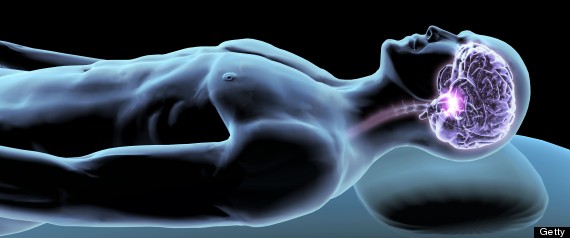Category: Article
Visual Deprivation Could Improve Hearing in Adults
 Most people are familiar with the idea that people who are blind have better hearing than those with normal vision. It was formerly thought that this compensation for lack of vision could only develop in the brains of the very young. However, new research conducted at the University of Maryland and Johns Hopkins University suggests that the brain may be more flexible than previously believed.
Most people are familiar with the idea that people who are blind have better hearing than those with normal vision. It was formerly thought that this compensation for lack of vision could only develop in the brains of the very young. However, new research conducted at the University of Maryland and Johns Hopkins University suggests that the brain may be more flexible than previously believed.
In the study, researchers kept one group of healthy mice in total darkness for a week, and exposed the other group to natural light for a week. Then the team used electrodes to measure activity in neurons in the mice’s primary auditory cortex. This is the part of the brain that processes how loud a sound is and its source. By analyzing this data, researchers found that the mice who were exposed to a week of darkness had much better hearing than the control mice.
This suggests that the circuits that process sensory information can be re-wired in the brains of adult mice, even after the early critical period for hearing. These findings seem to contradict the idea that once the critical period for hearing is past, the auditory system doesn’t respond to changes in an individual’s soundscape.
Pregnant Women Fit Between Everyday Obstacles
![]()
Pregnancy is...? This sentence can end in a multitude of ways depending on whose answering the question. If I ask the 'teen-mom-too-good-to-be-true-seventeen year-old-boyfriend' who isn't worried about nothing, then he'd probably say...well I would've asked but he just stormed off in his 92' Bronco. You know, the one with the flames on the side? If I ask the nervous husband who has been day dreaming of becoming that perfect family man ever since he got into the relationship, then he'd probably say: If it's a girl, I will be the dragon that protects my princess' castle. If I ask the soon-to-be-BIG-brother whose busy doing doughnuts in his fisher price corvette yelling "look mom, no hands," he'd probably say: This doesn't change the cookie rations, does it? And finally if I ask the pregnant mother-to-be if she thinks she's gained weight what she's praying for, she'd probably say: Just not your father's personality, PLEASE, not your father's personality.
Pregnancy is engaging. It brings together families, can tear relationships apart, and creates changes in the daily routine. Most notable is women's change in body size. Bodily size and the awareness of that size can create multiple obstacles. Typically, pregnant women are thought to be inhibited in their ability to adapt to these obstacles, however, pregnant women are just as capable as non-pregnant individuals. Today, we'll discuss their ability to asses depth perception and whether or not they can fit through openings such as doorways. Thanks to perceptual-motor-recalibration, pregnant women are just as good at adjusting their spatial awareness of their environment to match their constantly changing bodies.
More
The Polygenetic Basis of Mutations in the Development of Schizophrenia

Schizophrenia is a mental disorder often presented in patients by abnormal thought processes, impaired emotional responses, and negative symptoms. As a chronic disorder that affects ~1% of all people, schizophrenia can be have debilitating effects on patients, especially on their social lives. Due to the lack of knowledge on its pathophysiology and also the heterogeneity of the symptoms, it has been increasingly important to understand the genetics of schizophrenia.
Due to the marked reduction in fecundity seen in schizophrenic patients, the high heritability of the disorder pointed to the possibility that genetic alleles that were risk factors might occur as de novo mutations. Previous exome sequencing studies showed no promising results, but the inconclusive results were likely due to small sample size and a narrow focus on target genes. Two recent studies, the largest of their kind, gathered data from nearly 7000 people (nearly 3500 patients) from Sweden and Bulgaria, and showed that genetic effects on schizophrenia seemed to be very complex. Specifically, both papers published in Nature reflected on the implication of genetic mutations in clusters of specific proteins that governed signaling networks dealing with learning and memory. The studies identified the presence of de novo mutations, often nonsense mutations, notably in genes related to the PSD (post-synaptic density of dendrites), the calcium channels, the postsynaptic ARC complex, and the NMDA receptors.
More
The Power of Meditation
When the word meditation comes up, people usually think of Monks or Buddhists first. However, there is a reason they meditate so often; meditation does wonders for your brain, and here is how.

There are two main types of meditation: 1) Focused-attention meditation or 'Mindful meditation' and 2) Open-monitoring meditation. In Mindful meditation, you focus on one specific thing ranging from your breathing, a specific sensation in your body, or a particular object in front of you.The key point is to focus on one thing without consideration to other thoughts or events happening around you. When any distractions occur, you must be quick to recognize it and turn your focus back to your focal point. Open-monitoring meditation is where you pay attention to all the things happening around you but you do not react to them.
More
Are Men More Forgetful Than Women?
If you have ever noticed that men tend to forget things quite often, especially compared to women, you are not alone. A research team led by Professor Jostein Holmen in Norway conducted a large, longitudinal population health study called Hunt3 to reach the conclusion that men are more forgetful than women, regardless of their age. This is one of the largest health studies ever performed, with answers from over 48,000 people leading to their conclusions.
The participants were asked at the beginning of the study if they had problems remembering things, if they had problems remembering dates and names, if they had a memory of what they did one year ago, and if they could remember details about specific conversations.
Why do we need sleep?

We know from everyday life that, at some point, we need to sleep. In fact, extended sleep deprivation can lead to death. Despite the amount of sleep research that has been conducted, none have been able to clearly reason out the essential function of sleep. However, recently, a promising study by Dr. Nedergaard showed that sleep functions in clearing neurotoxic waste from the brain of mice. In effect, without sleep, these toxins would build up and cause problems for the body.
Specifically, the study looked at what is known as the glymphatic system. Because our central nervous system lacks a lymphatic system which is in our peripheral system, the glymphatic clearance pathway is the primary way in which our brain can "clear" the cerebrospinal fluid (CSF) and interstital fluid (ISF) of the brain parenchyma. This clearance includes functions of getting rid of wastes, soluble proteins, and even controlling the volume of fluid. Interestingly, the Nedergaard study showed that this clearance system works faster when mice were asleep--in other words, the exchange rates of CSF and ISF increased during sleep. In addition, they were able to show that surrounding cells in the brain would shrink in size to allow more efficient clearance.
The Elusive Engram: An Experiment in Memory Implantation

The human hippocampus, considered a key area for memory formation. Immunocytochemical staining for calcium-binding proteins is used in this horizontal section to differentiate major areas. Source - http://vida.neurocure.de/research_interests.html
With each passing minute, multitudes of memories surge through our minds as we recollect past experiences and encode new ones. Since the dawn of introspective thought, humans have wondered where such experiences might be encoded, if a physical encoding is even possible [1]. Fast forward to the 20th century and we now have pioneering works from the likes of Carl Lashley, acclaimed for his application of the term "engram" to describe a physical location and mechanism by which a specific memory is encoded, a memory trace so to speak [3]. Lashley's theories have proved highly influential (though his rat lesion methodologies have been criticized [2]), inspiring countless other neuroscientists such as Richard F. Thompson [6] and Howard Eichembaum [7] to embark on the quest to find the engram.
Fast forward to the 21st century and we continue to see groundbreaking work in engram research. A most recent study published in July 2013 titled "Creating a False Memory in the Hippocampus" [5] provides strong evidence for a functional memory engram through a novel memory implantation procedure. The study was conducted by the Susumu Tonegawa's RIKEN-MIT Lab, which seeks to uncover the neural mechanisms underlying learning and memory. In this experiment, Tonegawa's team of neuroscientists were able to implant artificial memories into the brains of mice using optogenetics, a technology in which the activity of specific neurons can be modulated by exposure to certain wavelengths of light. The specific memory manipulated in this study was a conditioned fear response to a mild electrical foot shock.
Autism Signs May Appear in First Months of Life
 Before babies can crawl or walk, they explore the world around them by looking at it. This is a natural and necessary part of infant development, and it sets the stage for future brain growth. By using eye-tracking technology, scientists were able to measure the way infants look at and respond to different social cues. This new research suggests that babies who are reluctant to look into people’s eyes may be showing early signs of autism.
Before babies can crawl or walk, they explore the world around them by looking at it. This is a natural and necessary part of infant development, and it sets the stage for future brain growth. By using eye-tracking technology, scientists were able to measure the way infants look at and respond to different social cues. This new research suggests that babies who are reluctant to look into people’s eyes may be showing early signs of autism.
The researchers at Marcus Autism Center, Children's Healthcare of Atlanta and Emory University School of Medicine followed babies from birth until age 3, and discovered that infants later diagnosed with autism showed declining attention to the eyes of other people, from the age of 2 months onwards.
A Thanksgiving Feast…with a Side of Neuroscience
It’s just about that time of year again – in just over a week’s time we’ll be sitting down to a huge feast consisting of turkey, stuffing, and mashed potatoes; we’ll be watching the Macy’s Parade soon to be followed by two football games; and we’ll be giving thanks for our reunion with our grandparents, uncles, aunts, cousins, brothers, sisters, parents, and more. Thanksgiving definitely holds a special place in my heart – however, up until recently, it always used to provide just a little bit of stress. That is because, at least in my family, somewhere between polishing off the last roll and preparing for pecan pie one relative or another always asks me, “so what are you studying in school again?” And when I answer “Neuroscience!” I typically get one of two responses: the confused look, followed by “Neuroscience? What is neuroscience?” (typically from the older crowd in the room), or the rolling of the eyes, followed by “What are you going to do with a degree in neuroscience?” (typically from the former engineers and business majors). I love neuroscience, and I know I’ve found my passion studying it here at BU, but those questions always seem to bring with them a certain pressure that I always felt I cracked beneath. However, I recently discovered the perfect way to address both of these questions, and I’m here to let you in on the secret so you can impress your relatives at the thanksgiving dinner table as well. This year, when Grandma or Uncle Tony ask me “why neuroscience?” my answer will be simple – because neuroscience is changing, and will continue to change, the world and how we approach it. 
I can already imagine the taken aback look crossing my relative’s faces, and the comment that I’m perhaps being a little dramatic – neuroscience is changing the world? Not only will my answer definitely get their attention, but I’m confident that my answer is correct, and proving my point to my disbelieving family will only make Thanksgiving that much more fun. Neuroscience is the science of understanding the nervous system (that is the system that essentially allows for all of our functioning) on a basic scientific level, and then applying that knowledge to do a bunch of things, from eradicating the diseases that plague the system (Alzheimer’s, Parkinson’s), to applying the knowledge in the classroom so that students of all ages can learn to their full potential. If you take a step back and view the whole picture, it’s not surprising that neuroscience will change the world in our lifetime; as opposed to some other fields, neuroscience is constantly acquiring completely new information about systems that not too long ago used to be a complete mystery – this knowledge is overflowing and already being applied to the real world to make beneficial changes. I will quickly outline two fascinating new outlets of neuroscience that are changing the world right before our very eyes, so that you have solid proof to further widen the eyes of your relatives this holiday season.
Temptation: The Effects of Immediate and Delayed Rewards
As we approach the loved holiday season, we also approach the dreaded weight gain that comes along with it. It probably won’t come as a surprise to you that our brain, specifically the hippocampus, plays a role in resisting immediate or delayed temptation.

The hippocampus deals with memory, including recalling past events and imagining them in the future. A study called “A Critical Role for the Hippocampus in the Valuation of Imagined Outcomes” examines healthy people as well as people with Alzheimer’s disease, which impairs memory and is associated with atrophy of the hippocampus. The study looked at “time- dependent” choices having to do with money in addition to “episodic” choices having to do with food, sports, and cultural events.
